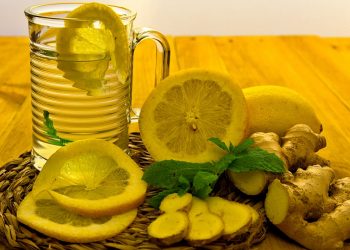Incontinence home remedies can be a game-changer for those grappling with this often embarrassing condition. It’s not just a physical issue; it affects your emotional well-being and daily life too. You’re not alone in this journey, and finding effective, natural solutions can empower you to regain control. Let’s dive into remedies that not only help but can transform your experience.
Contents
Understanding Incontinence
Incontinence is the involuntary loss of urine or feces, and it affects millions of people worldwide. It can stem from various causes, including age, childbirth, prostate issues, and neurological disorders. The significance of addressing incontinence cannot be overstated. It impacts your social life, self-esteem, and overall health. If you’re tired of feeling anxious about leaks and want to reclaim your freedom, these home remedies are for you.
Why Home Remedies?
You might wonder why you should consider home remedies for incontinence. They’re often more accessible, cost-effective, and can be just as effective as medical treatments. Plus, they usually come with fewer side effects. Home remedies encourage a holistic approach to your health. You deserve to feel comfortable and confident in your body, and these remedies can help you achieve that.
1. Pelvic Floor Exercises (Kegel Exercises)
What Are They?
Kegel exercises involve the repeated contraction and relaxation of the pelvic floor muscles. They strengthen the muscles that support your bladder, making them crucial for managing incontinence.
How to Do Them:
- Find the right muscles: Try to stop urination midstream. Those are your pelvic floor muscles.
- Contract and hold: Squeeze these muscles for 5 seconds.
- Relax: Release for 5 seconds.
- Repeat: Aim for 10-15 repetitions, three times a day.
Why It Works:
Strengthening your pelvic floor can reduce leaks and improve bladder control. Research shows that consistent practice can lead to significant improvement over time. You might even find yourself feeling more confident in social situations!
2. Dietary Changes
What to Change:
What you eat plays a colossal role in managing incontinence. Certain foods can irritate your bladder, while others can support it.
Foods to Avoid:
- Caffeine
- Alcohol
- Spicy foods
- Artificial sweeteners
Foods to Embrace:
- High-fiber fruits and vegetables
- Whole grains
- Hydrating foods like cucumbers and watermelon
Why It Works:
A balanced diet helps regulate your bladder and digestive health. Foods rich in fiber can prevent constipation, which can worsen incontinence. You’ll not only feel better physically but emotionally too.
3. Herbal Remedies
Effective Options:
Herbs like pumpkin seeds, saw palmetto, and corn silk have shown promise in improving bladder health.
How to Use Them:
- Pumpkin seeds: Snack on them raw or add them to salads.
- Saw palmetto: Available as a supplement or tea.
- Corn silk: Brew it as a tea for soothing effects.
Why It Works:
These herbs may help reduce inflammation and improve urine flow. However, always consult with a healthcare provider before starting any new supplement to ensure it’s safe for you.
4. Hydration Management
Why It Matters:
You might think that cutting back on fluids can help, but that’s often counterproductive. Staying hydrated is essential for bladder health.
How to Manage Intake:
- Drink at least 6-8 glasses of water daily.
- Spread your fluid intake throughout the day.
- Avoid drinking large amounts before bedtime.
Why It Works:
Proper hydration prevents concentrated urine, which can irritate the bladder. It may seem counterintuitive, but managing your intake wisely can actually help reduce urgency and frequency.
5. Weight Management
The Link to Incontinence:
Excess weight puts pressure on your bladder and pelvic floor muscles. Losing even a small amount of weight can relieve this pressure.
How to Approach It:
- Combine a healthy diet with regular exercise.
- Focus on activities you enjoy—walking, swimming, or yoga.
Why It Works:
Losing weight can lead to significant improvements in symptoms. You’ll feel lighter, both physically and emotionally, and that boost in confidence can be remarkable.
6. Scheduled Bathroom Visits
What Is It?
This involves setting a schedule for restroom visits, regardless of the urge to go.
How to Implement:
- Start by visiting the restroom every two hours.
- Gradually extend the time as your bladder strengthens.
Why It Works:
This technique helps train your bladder, reducing urgency over time. Plus, knowing you have a plan can ease anxiety about potential leaks.
7. Mindfulness and Relaxation Techniques
The Power of Mindfulness:
Stress and anxiety can exacerbate incontinence. Techniques like yoga, meditation, and deep breathing can help.
How to Practice:
- Dedicate 10-15 minutes daily to mindfulness exercises.
- Join a local class or follow online tutorials.
Why It Works:
Relaxation techniques can help manage stress, improving your overall well-being. A calm mind often translates to a more controlled bladder.
Bottom Line
Incontinence can feel isolating, but you don’t have to navigate it alone. These incontinence home remedies are practical, effective, and can help you take back control of your life. Remember, every small step counts, and these remedies can lead to big changes.
If you’re still feeling overwhelmed, consider reaching out to a healthcare professional for personalized guidance. You deserve to live without fear, embarrassment, or discomfort. Embrace these remedies, and let’s get started on your journey to freedom.
Frequently Asked Questions
1. How long will it take to see results from these home remedies?
Results vary. Some people notice improvements in a few weeks, while others may take longer. Consistency is key.
2. Can I combine these remedies with medical treatments?
Absolutely! Many people find that combining home remedies with medical advice leads to the best results. Always consult your doctor for personalized guidance.
3. Are there any side effects to these remedies?
Most home remedies are safe when used as directed. However, always check with a healthcare provider, especially when trying new supplements or herbs.
Take the leap today. Your journey to feeling confident and in control starts now!
Get Your FREE Natural Health Guide!
Subscribe now and receive our exclusive ebook packed with natural health tips, practical wellness advice, and easy lifestyle changes — delivered straight to your inbox.
















